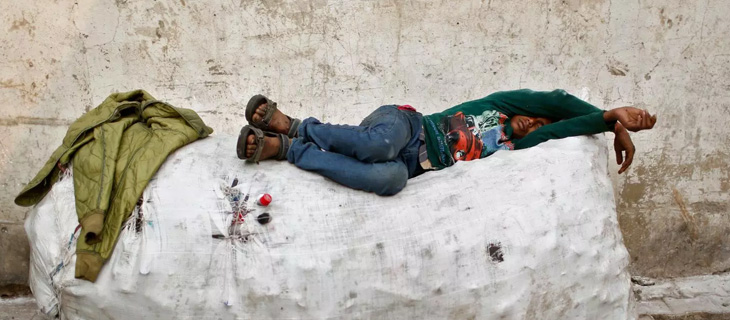Paragon has a combined capacity of nine million pieces per year at its three plants in Noida, near New Delhi, and one at Una, Himachal Pradesh. Alcis Sports retails its products through 150 outlets of Globus, Shoppers Stop, Sports Station, and Central.
“We are already present in over 700 retail outlets in India. We are looking at reaching tier II and III towns also. We also have exclusive outlets in five cities: Kochi, Guwahati, Mumbai, Delhi, and Jaipur,” Baid told Quartz.
The licensed manufacturer of apparel merchandise for the 2018 FIFA World Cup in Russia, Alcis secured $4 million in funding in April 2017 from Singapore-based RB Investments. It is now looking for up to Rs60 crore more to expand.
Making a start
After graduating from NIFT in 1995, Baid worked with some garment manufacturers for a few years. Dealing with suppliers and distributors on a regular basis, he was left bewildered by the industry’s unorganised nature.
A chance meeting with a friend, who worked with Reebok, then prompted him to manufacture sportswear in India, in 2001. He leveraged his savings to invest in machinery. Thus was born Paragon Apparels, with 10 machine units.
However, all this while, Baid was troubled by frequent reports of water bodies, cities, and oceans getting filled up with plastic. For instance, India alone produces over 15,342 tonnes of plastic waste every day (pdf), according to the research institute The Energy and Resources Institute (TERI). The country’s annual per capita consumption of plastic is estimated to be 20 kg by 2022, according to the ministry of petroleum and natural gas.
So Baid decided to turn to yarns that were more sustainable than polyester. The answer lay in recycled plastic.
“It’s an attractive idea for a country that produces loads of plastic waste and banning it hasn’t been very effective,” Baid said.
The trend is already quite popular in technologically mature markets such as the US and the UK, with well-known brands like Adidas and Nike latching on to it.
Baid began to explore and aimed to make 90% of his apparel line out of recycled plastic over the next two years.
Why only PET bottles?
India produced about 1,500 kilotonnes of PET during 2015-2016, higher than 982 kilotonnes in 2014-15. Recycling all this can generate over Rs3,000 crore annually, according to the National Chemicals Laboratory (NCL). While recycling PET bottles to make clothes is a nascent business in India, it is gradually beginning to parallel textiles, according to NCL director Ashwini Kumar Nangia.
“R-PET (Recycled Polyethylene Terephthalate) is a strong, durable, and recyclable material used for soda bottles, water bottles, food jars. It is an environment-friendly, cost-effective, and safe product that also performs better than polyester,” Baid says.
Typically, sports garments are made of polyester, a man-made fiber which ensures elasticity. But producing polyester is environmentally hazardous. It consumes huge quantities of water, chemicals, and fossil fuels as well as its residues. Moreover, its byproducts are toxic.
The garments made out of recycled plastic, on the other hand, reduce carbon emissions by over 54%, energy consumption by 50%; they also save 27 litres of water per piece, and perform better than 100% virgin polyester, Baid says.
The task of switching to recycled plastic, however, wasn’t that easy.
While the US and the UK have organised plastic collection systems for recycling, in India, it’s the traditional rag pickers who do the job. So Alcis began to tap this network to source its raw material, melting them it into fine yarn in a small plant in Mumbai. This yarn was then used to spin sportswear, including t-shirts, jackets, and rucksacks.
The company’s technology makes the garment breathable, anti-sweat, and anti-odour, besides ensuring it is very light, weighing just 86 gm per piece, on average.
But in the long run, making clothes out of recycled plastic may do more harm than good.
“When you wash the clothes made of recycled plastic or any other synthetic garment, it sheds large amounts of plastic microfibres not detected by washing machine filters. Even sewage treating plants cannot catch it,” says Mark Browne, an ecologist and postdoctoral fellow at the National Center of Ecological Analysis and Synthesis in Santa Barbara, California. Browne has studied plastic pollution for a decade.
It is estimated that half a million tonnes of plastic microfibres, equivalent to more than 50 billion plastic bottles, shed during washing ends up in the ocean and ultimately enters the food chain.
So Baid has now set his sights on recycling clothes made of recycled plastic and even collecting plastic waste from the Himalayas.
The original article is published here
Plastivision does not claim ownership of this article.

